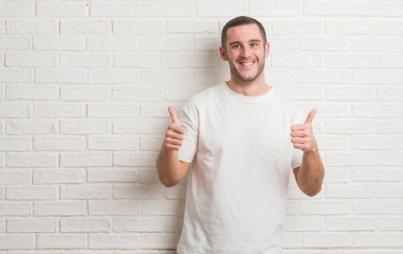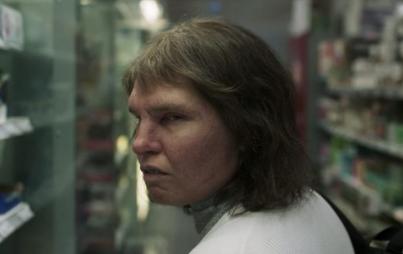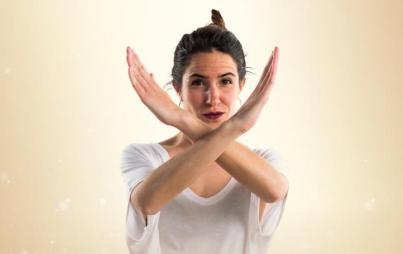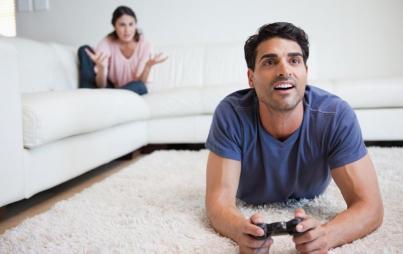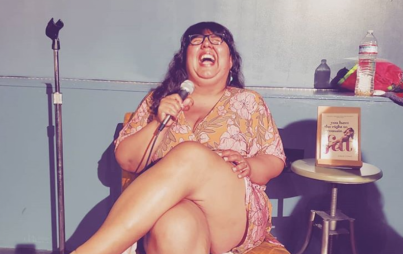
Matt Joseph Diaz. Image: Wilfredo Ruiz/www.flandeguava.com
Insecurity about their bodies is something all men experience — yet finding a man to speak openly about these issues is like finding an oasis in the desert.
The body positive movement has swept through the media over the past few years — more and more films are showing people of all body types, plus-size modeling is being celebrated more as women of different sizes are allowed to own their bodies, and people like Nicki Minaj and Meghan Trainor are writing painfully-catchy songs about curvy bodies.
It’s clear that we are becoming more comfortable having an open and honest discussion about what makes our bodies different — and what makes us feel insecure.
Well, most of us, anyway. All of this open discussion about our body image does bring up an important question, though:
Where are all the body positive men?
As a young, non-white man in the body positive movement, I was quickly treated as a refreshing change of pace from the advocates people have gotten used to over time. This became clear fairly quickly as I began to notice that most of, if not all, my peers were women. Though a jarring realization, as soon as I gave it some thought, it made sense for a lot of reasons.
Women are held to a much tighter standard of what “acceptable body types” are when compared to men: Beauty pageants and the mainstream modeling community idolize thin, “conventionally attractive” bodies. Did you know that the original Miss America competition used to have entire categories dedicated to body structure and facial symmetry?
If you take a look at most billboard and magazine ads, you’ll see how quickly women are sexualized to sell products that have nothing to do with sex — I’m not entirely sure what this lady in lingerie has to do with selling Burger King but damn am I hungry. And if you look at any mainstream television show where an unconventional-looking guy is dating a thin, gorgeous woman (King of Queens, Family Guy, Big Bang Theory, etc.) you’ll start to notice a pattern in the standards upheld when it comes to women’s appearances.
The reason we can’t find the body positive men is fairly simple: we haven’t created a society that encourages men to voice their feelings.
Even in a society where it’s much more socially acceptable for men to look “unusual,” men still deal with extreme body image issues. I can’t tell you how many men I’ve had conversations with who talk about feeling unattractive because of their weight, their hairline, their lack of muscle, or not having a model physique. Insecurity about their bodies is something all men experience — yet finding a man to speak openly about these issues is like finding an oasis in the desert. What makes us so self-conscious about putting ourselves out there?
Two words: Toxic masculinity.
Toxic masculinity is one of the less-discussed side effects of the patriarchy, and one of the many reasons why feminism is so important for men (aside from, like, believing women deserve equality?). Society upholds the dangerous belief that men are only valid if they embrace emotionless, stereotypically-masculine action and behavior — behaviors that range from “boys don’t cry” to the “boys will be boys” mentality that follows them off the playground. These ideas teach young boys to reject their feelings out of fear as being labeled a “pussy” (which has its own slew of sexist connotations), and awards aggressive and violent behavior among them.
This may not seem like a big issue when it comes to children, but the kids we raise today become the adults of tomorrow. Teaching our young boys that the definition of masculinity is inextricable from being silent and stoic leads to emotionally-stunted adults. Even more dangerous, young boys acting out aggressively toward young girls and having those actions written off as “boys being boys” and “a boy’s first crush” imbues all sorts of negative ideas about interpersonal relationships between men and women as well.
So you take a large group of men, teach them that they aren’t allowed to openly express any feelings aside from their aggression, and, through their behavior, teach them that their aggression is best channeled physically, especially toward women.
Boys will be boys, I guess.
The reason we can’t find the body positive men is fairly simple: We haven’t created a society that encourages men to voice their feelings. It doesn’t feel safe for men to open up because we’re afraid of judgment — more often than not, from other men.
As a man who has opened up to millions of people about my own insecurities, I can attest to this. In the moments after my video started going viral, I was really afraid to see how the public would react to a man opening up so much about his own self-doubt. On top of that, I’m a fairly intimidating-looking guy (6’5”, tattooed and pierced, mohawk) so there was definitely a collective held breath amongst myself and those closest to me.
As someone who has experienced the openness of discussing their body image problems online, let me be the first to send a message to my fellow men:
Vulnerability is a sign of strength, not weakness, and those who see being open and sincere as symbols of fragility have a skewed idea of vulnerability. It takes no strength to close yourself off from the world — to refuse to be who you are because you’re afraid of the reaction of those around you. Feeling deeply and openly, even in the face of resistance, is what takes true strength.
When being true to yourself, the reward will always outweigh the risk. As intimidating as it may seem, the world responds to sincerity and vulnerability with some of the most wonderful gifts of the human experience: compassion, kindness, respect, and generosity.
The anxious feelings you get when beginning to open up about your feelings lie inside of all men, but they don't have to. Every opportunity in which you’re true to yourself and those around you helps forge a path for your fellow men and the young boys who look up to you.
Insecurities lie in each and every one of us. If you want there to be a safe space for us to discuss these problems openly, then it has to start with you.
If you want a safe space, you have to create one.




